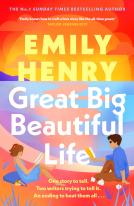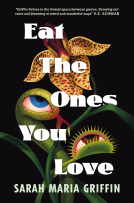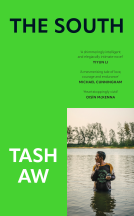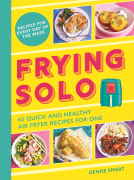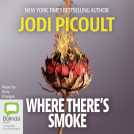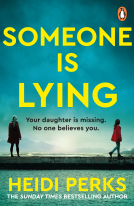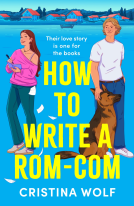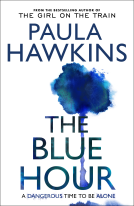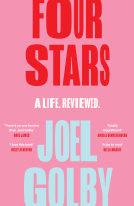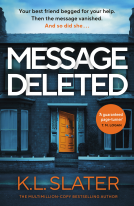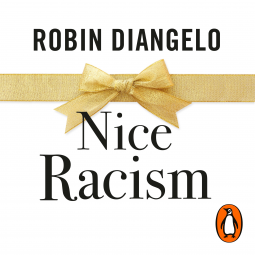
Nice Racism
How Progressive White People Perpetuate Racial Harm
by Robin DiAngelo
Narrated by Robin DiAngelo
This title was previously available on NetGalley and is now archived.
Send NetGalley books directly to your Kindle or Kindle app
1
To read on a Kindle or Kindle app, please add kindle@netgalley.com as an approved email address to receive files in your Amazon account. Click here for step-by-step instructions.
2
Also find your Kindle email address within your Amazon account, and enter it here.
Pub Date 29 Jun 2021 | Archive Date 30 Jun 2021
Penguin Random House UK Audio | Allen Lane
Talking about this book? Use #NiceRacism #NetGalley. More hashtag tips!
Description
Brought to you by Penguin.
Racism is not a simple matter of good people versus bad. In White Fragility, Robin DiAngelo explained how racism is a system into which all white people are socialized. She also made a provocative claim: that white progressives cause the most daily harm to people of colour. In Nice Racism, her follow-up work, she explains how they do so. Drawing on her background as a sociologist and over twenty-five years working as an antiracist educator, she moves the conversation forward.
Writing directly to white people as a white person, DiAngelo identifies many common racial patterns and breaks down how well-intentioned white people unknowingly perpetuate racial harm. These patterns include rushing to prove that we are 'not racist'; downplaying white advantage; romanticizing Black, Indigenous and other peoples of colour; pretending white segregation 'just happens'; expecting BIPOC people to teach us about racism; carefulness; and shame. She challenges the ideology of Individualism and explains why it is OK to generalize about white people, and demonstrates how white people who experience other oppressions still benefit from systemic racism. Writing candidly about her own missteps and struggles, she models a path forward, encouraging white readers to continually face their complicity and embrace courage, lifelong commitment and accountability.
Nice Racism is an essential work for any white person who wants to take steps to align their values with their actual practice, and offers people of colour an 'insider's' perspective which may be helpful for navigating whiteness.
© Robin DiAngelo 2021 (P) Penguin Audio 2021
Available Editions
| EDITION | Other Format, Unabridged |
| ISBN | 9780241529256 |
| PRICE | £10.83 (GBP) |
| DURATION | 8 Hours, 40 Minutes |
Links
Featured Reviews
 Reviewer 429651
Reviewer 429651
**listened to audiobook**
Having read Robin DiAngelo's previous books, I was looking forward to reading this book. It is certainly eye-opening, but it felt very dense compared to her other books, and other books I have read/listened to on this topic. It of course had important and interesting things to say, but I wasn't as engrossed and attached as I have been with other books.
Not my favourite, but I have definitely taken something from it nevertheless.
 Sarah W, Reviewer
Sarah W, Reviewer
Having read the predecessor to this book not long ago, I was very much looking forward to seeing what this book had to offer. Thank you to Robin DiAngelo and @AllenLaneBooks for this advanced audio copy of Nice Racism. Nice Racism is due to be published on 29th June 2021 and you can get a copy here.
Description 🔖
Robin DiAngelo’s first book; White Fragility explored the concept of all white people being socialised into a system that is inherently racist. In this follow up work, DiAngelo discusses how white progressives unintentionally cause the most racial harm. She uses her background and vast experience as a sociologist to open the conversation about how niceness does not equate to anti-racism
General Thoughts 🤔
I think that this follow up book to White Fragility was just as good and just as informative. Again, I agreed with many of the points raised emphatically because they were scenarios that I have encountered and lived; I know them to be true. What this book made me realise is that I’m disappointed in myself for not being braver and speaking out when well-meaning white people have made me feel less than or uncomfortable. At the very least, why am I not able to do this with people that I consider to be close to me? Which probably loops back to white fragility; I don’t want to upset people and make them feel uncomfortable.
The downplaying of white privilege and attitudes about individualism really struck a chord with me. I am almost certain that many of the white people that I know would claim that they have not received any preferential treatment because of their whiteness and any successes that they have are due to their own individual hard work. I don’t doubt that they have worked hard, but this statement is flawed due to the fact that they did not start from the same place as people of colour will have started from; they had a head start just because of their whiteness. This is not a statement that sits well with white progressives as is well documented within this book.
Writing Style ✍️
Similar to the first book, I thought that this one was structured and organised in a way that made all of the information digestible and easy to understand. I felt like Nice Racism included more real life examples from the authors experiences that helped to make her explanations relatable. I appreciated that the examples used weren’t only statements or actions of other people. The author included evidence of times when she herself has perpetuated racial harm. I found her explanations of how she addressed and dealt with those incidents informative.
I read some quite unsavoury and negative reviews about White Fragility after I had read it and it pleased me to see that some of that was directly addressed in this book.
Conclusion & Scoring 🎖️
As I’ve said in other blog posts, I find reviewing books like this really difficult as they do invoke and draw out a lot of emotional feelings for me, but I don’t find it easy to pack all of that into a review. I also don’t think that a review is the place for that. I am thankful for Robin DiAngelo’s work as I think that is educating for me and others and helps to at the very least, see things from a perspective that is not your own.
After the runaway success of 'White Fragility', it seemed almost inevitable that DiAngelo would release another book, and indeed, she shares her long history of experience of being a white person engaging with other white people about race, racism and anti-racist work.
She details many circumstances in which a white person can analyse their behaviour and make proper change, i.e. making sure that in being 'nice' (hence the title of the book), we are not accidentally using that as an excuse for doing nothing, or enacting racial harm in another way- for example, not speaking up, or talking about how we are 'one of the good ones' and thereby excusing ourselves from any racism we may have enacted.
In many ways, this book looks at some harmful actions and behaviours that many people wield, consciously or not, and in those scenarios, this book is very helpful.
However, there are two linked problems that I had with the book that I couldn't quite shake whilst listening to it. And those are audience and purpose.
Although DiAngelo is (rightly) quick to both announce that she herself is not an expert in experiencing racism, but rather a very experienced facilitator (a strength that she shares effectively in many parts of the book), and quick to quote and cite Black writers and thinkers who have led her to the conclusions in the books, I found myself wondering why the book needed to exist when there are so many brilliant books by Black writers, who share experiences they themselves have experienced.
As a result, I got lost in the who the intended audience for this book would be, and therefore what its purpose would be.
For example, if the book is aimed at those who read 'White Fragility' and wanted to delve into next steps, this book feels like it might go in too high after that, or assumes knowledge of many other writers, whereas a book like Reni Eddo-Lodge's 'Why I'm No Longer Talking to White People About Race' or Ijeoma Oluo's 'So You Want To Talk About Race' might be a better point of entry.
If the book is aimed at those who are more experienced and are ready to be challenged, then I also question if 'Nice Racism' is the right book, or rather, the right book over the work of a Black writer or thinker.
This is not to say that people will only pick up one book on anti-racism- many people don't- but I think it has to be recognised that many people do, as evidenced by 'White Fragility' massively outselling many other books on race and racism last year.
I recognise I am saying this all as a white person, and, to follow some of the learnings from 'Nice Racism', not to position myself as having 'solved it' or showing that I am 'one of the good ones', but rather to question whether this book, and DiAngelo's platform, could have been better used as a co-authored book, uplifting and featuring voices directly affected by racism, and/or supporting in another way.
Again, this is not to say that the book is without merit- there was a lot in this book that made me deeply reflect, often with horror, on my own behaviours and actions, and DiAngelo is clearly very skilled and experienced as a facilitator, and therefore in seeing reactions before they arise. There is also a lot of value in white people owning the problem and talking to each other about it, as DiAngelo does with a presumed white audience for the book.
But I do wonder if this book relies too much on readers finishing this book, and immediately picking up books by Black authors, when the middleman could have just been cut out, and her platform could have just lifted up those authors themselves.
3.5 stars rounded up.
I received this as an ARC on NetGalley, in exchange for an honest review
Actual rate: 3.5
Good:
- Important and always relevant information
- Useful and applicable to every persons life
- Follows everyday situations and reactions in a sensitive, but truthful and uncoated manner
Bad:
- America-centric
- I did not agree with all the views
This non-fiction guide to facing every-day harm we (white people) cause by racism is relevant, and rings true to life. It was not a comfortable read, which is the whole idea of facing your own complicity in racist power structures. Seeing how to change these interactions and understand why we react the way we do was eye opening and important. This was especially important to me, as these changes can be put into action, and help me to understand and apply what I am learning.
However, there were some views expressed in this book which I couldn't agree with, and I will never agree with everything (and i agree with the vast majority of this book), this would not be an honest review without bringing up points I disagreed with. For instance, during the trauma chapter, it often felt as though "white trauma" is reduced to made up feelings which cannot affect reality, or prevent people from hearing certain things. While it is true that white progressives sometimes use their trauma to avoid making changes, the trauma of shootings, violence etc. is not lessened due to skin colour, and can affect your ability to hear descriptions of these. This needs to be recognised, not played off.
Also, the book was quite American central, meaning policy and city judgements may not apply to your specific country. This is not a reason to avoid reading this book, it is very important, but do note that further research about organisations to donate to and specific laws and events may be needed in order to apply this to your own country.
Hard-hitting, emotional and informative.
I would recommend this book to all white people, especially those looking to educate themselves further on racism, and people looking to understand how these racist power structures play out in every-day life.
Overall: 4/5
Robin DiAngelo tends to attract some criticism for her anti-racist work despite being a white woman, but I think her work is incredibly crucial and she is honestly such a necessary voice for those who think anti-racist work doesn't apply to them, think they have suffered in the same way by being a minority as well, and might quietly support movements like BLM but don't critique their own conditioning. A necessary and vital work that all need to read.

